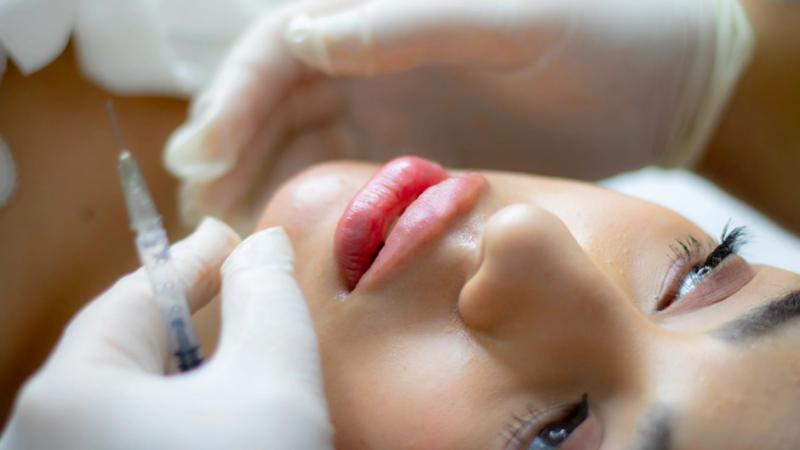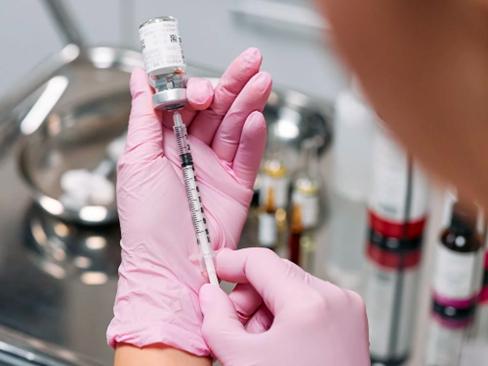Should I Get Dermal Fillers: How to Consider

So, you're considering dermal fillers? That's fantastic! Dermal fillers are a popular and safe technique to enhance your look. However, there are a few things to think about before making a decision. We'll go through how to determine if dermal fillers are appropriate for you and how they work in this blog post. We'll also go over the safety of dermal fillers and answer some frequently asked questions about them.
What You Need to Know Before Trying Dermal Fillers
Over time, our bodies change, sometimes in ways that don't suit us. New wrinkles on our faces or cheekbones that aren't as apparent as they once were are examples of such changes. If you're unhappy with your appearance, dermal fillers can help you reduce the appearance of aging signs.
Dermal fillers are materials that act to plump your skin by adding volume, like hyaluronic acid. Hyaluronic acid is something our bodies create naturally and its purpose is to keep our skin moisturized and looking full. With age though, we produce less of it which then manifests in wrinkles and a general loss of face volume.
A variety of dermal fillers are used to increase volume and smooth wrinkles in the skin. They're a popular beauty treatment because they're painless, effective, and inexpensive. Dermal fillers may also be utilized to treat specific regions of the face for a personalized appearance.

How do I decide which dermal filler is appropriate for me?
With the wide range of dermal fillers available, it's tough to determine which one is appropriate for you. The best way to make this decision is by meeting with a board-certified dermatologist or plastic surgeon. They will evaluate your specific needs and suggest the filler that would work optimally for you.
When selecting a dermal filler, it's crucial to think about your finances. Some fillers are more costly than others, but this does not always imply that they are of higher quality. Make careful research and acquire all of your options before making a selection so you can make an informed decision.
The best dermal filler for you will depend on your unique needs and goals. Some fillers are better for addressing wrinkles while others are better for adding volume to the cheeks or lips. Be sure to discuss all of your options with a board-certified dermatologist or plastic surgeon to ensure you choose the best dermal filler.

Why do people get dermal fillers?
Dermal fillers are used to restore volume and improve the appearance of wrinkles. Other people use them to reduce wrinkle appearance, while others utilize them to enhance lost volume in their faces. Furthermore, dermal fillers can be utilized to treat scars or other flaws.
Fillers are a popular cosmetic surgery procedure because they are safe, producing good results, and cost-effective. Furthermore, dermal fillers may be used to target specific regions of the face for a unique effect.
If you're contemplating dermal fillers, see a board-certified dermatologist or plastic surgeon. They'll be able to evaluate your unique demands and suggest the best dermal filler for you.
Note that dermal fillers are not FDA-approved for body contouring procedures; this means they cannot be used breast or buttocks augmentation.
Before having fillers, should I take any special precautions?
Yes, there are a few things you should do before getting dermal fillers. First, it is important to consult with a board-certified dermatologist or plastic surgeon. They will be able to assess your unique needs and recommend the best dermal filler for you. Additionally, they can answer any questions you have about the procedure and help you understand the risks involved.
Second, it is important to avoid sun exposure before getting dermal fillers. This is because the sun can cause the filler to break down prematurely. If you must be in the sun, be sure to wear sunscreen with an SPF of 30 or higher.
Finally, it is important to stop taking blood-thinning medications, such as aspirin or ibuprofen, before getting dermal fillers. These medications can increase the risk of bruising and bleeding at the injection site.
During the consultation, what questions should I ask my doctor?
When you meet with your doctor for a consultation, it is important to ask them questions about the procedure. Some things you may want to ask include:- What are the risks involved?- What are the possible side effects?- How long will the results last?- How much does it cost? Additionally, it is important to ask your doctor about their experience with dermal fillers. Be sure to ask how many procedures they have performed and whether or not they are board-certified.
You can request before and after photos of actual patients from the doctor's office. Every specialist has his or her own ideas, methods, and degrees of experience. And don't be afraid to ask about your doctor’s training and certification during the initial consultation.
Lastly, you and your physician should communicate about realistic results and your expectations — it's your face, after all.

What are the risks of using fillers?
As with any cosmetic procedure, there are risks involved with dermal fillers. The most common side effects include bruising, swelling, and redness at the injection site. These side effects are typically mild and should resolve within a few days.
More serious side effects are rare but can occur. These include infection, allergic reaction, and necrosis (tissue death). Be sure to discuss the risks with your doctor before getting dermal fillers.
Although it's not common, filler can occasionally be injected into a blood vessel by accident. This can lead to blurred vision or even permanent blindness. If you notice that your skin is turning blue and you're experiencing pain, call your doctor or go to the emergency room immediately—these are two possible signs that filler is in your bloodstream. Once again, this emphasizes why you want to see an experienced doctor who knows how to properly perform the procedure.
Who shouldn't get dermal fillers?
Dermal fillers are not right for everyone. You should not get dermal fillers if you are pregnant, breastfeeding, or have a history of keloids (raised scars). Additionally, you should not get dermal fillers if you are taking blood-thinning medications, such as aspirin or ibuprofen.
Here's another thing to keep in mind: avoid obtaining filler right before a teeth cleaning or other dental treatment. These activities put strain and stretching on the face, which might cause fillers to go misplaced. You may inquire with your doctor when it's okay to have any future dental work during your visit.
Conclusion
Before getting dermal fillers, it is essential to do your research and consult with a board-certified doctor. Remember to ask about their experience specifically with dermal fillers and risks so that you can make an informed decision. By doing this,
you increase the chances of having a successful procedure.
FAQ
How much do dermal fillers cost?
The cost of dermal fillers varies depending on the type of filler used, the amount needed, and the geographical location. On average, however, patients can expect to pay anywhere from $500 to $800 per syringe.
Are dermal fillers permanent?
No, dermal fillers are not permanent. Depending on the type of filler used, results can last anywhere from six months to two years. After that time, patients will need to come in for another treatment if they want to maintain their results.
How long do dermal fillers last?
Dermal fillers typically last anywhere from six months to two years. However, this can vary depending on the type of filler used and the individual's skin. Some people may need to come in for touch-ups more often than others.
How to prepare for dermal fillers?
It is critical to conduct research and meet with a board-certified doctor before undergoing dermal fillers. Keep in mind that you should inquire about their expertise with dermal fillers as well as any potential risks so that you can make an informed selection. You have a considerably better chance of having a successful procedure if you follow these steps.
More to Read:
Previous Posts:








